Tea has been used for a long for its numerous health benefits, mainly in aiding digestion and relieving bloating problems. Drinking a cup of tea for digestion and bloating is a great idea if you are facing any minor indigestion problem.
With its soothing properties and natural compounds, tea is found to be powerful in promoting a healthy digestive system.
When it comes to digestion and bloating, certain types of tea have proven to be especially effective.
5 types of Tea for Digestion and Bloating
Here are 5 such digestion teas that are known for their digestive properties.
1. Peppermint tea
2. Ginger Tea
3. Chamomile Tea
4. Fennel Tea
5. Dandelion Root Tea
Let us discuss one by one in detail:-
1. Peppermint tea
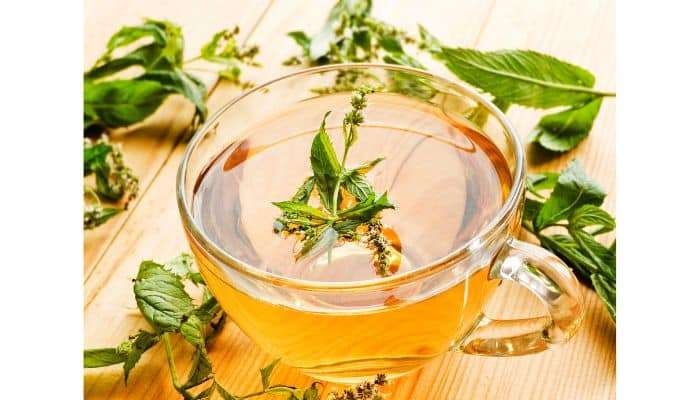
Our first tea on the list is none other than peppermint tea. Peppermint is well-known for its soothing properties and is a go-to remedy for digestive discomfort. It contains menthol, which helps relax the muscles in your gastrointestinal tract. This can relieve cramps and reduce bloating. Simply brew a cup of peppermint tea and sip it slowly. You’ll feel the calming effects in no time.
Peppermint tea is made from the leaves of the peppermint plant. This aromatic tea offers a delightful combination of minty flavor and natural sweetness.
- It is excellent for soothing digestive discomfort, including bloating and gas problems.
- The menthol in peppermint helps to relax the muscles of the gastrointestinal tract, promoting smoother digestion and relieving discomfort.
- After a long day or before bedtime, peppermint tea calms both the mind and body, making it a great choice for winding down. The soothing properties of peppermint can help to reduce stress, anxiety, and tension, allowing you to relax and unwind.
- Its beautiful aroma and cool taste make it a popular choice during hot summer months. Whether enjoyed hot or iced, this herbal tea provides an instant burst of freshness that rejuvenates the senses.
In summary, peppermint tea offers a range of benefits including improved digestion, relaxation, and refreshment. Incorporating this flavorful beverage into your daily routine can not only enhance your overall well-being but also provide you with moments of pure enjoyment.
2. Ginger Tea
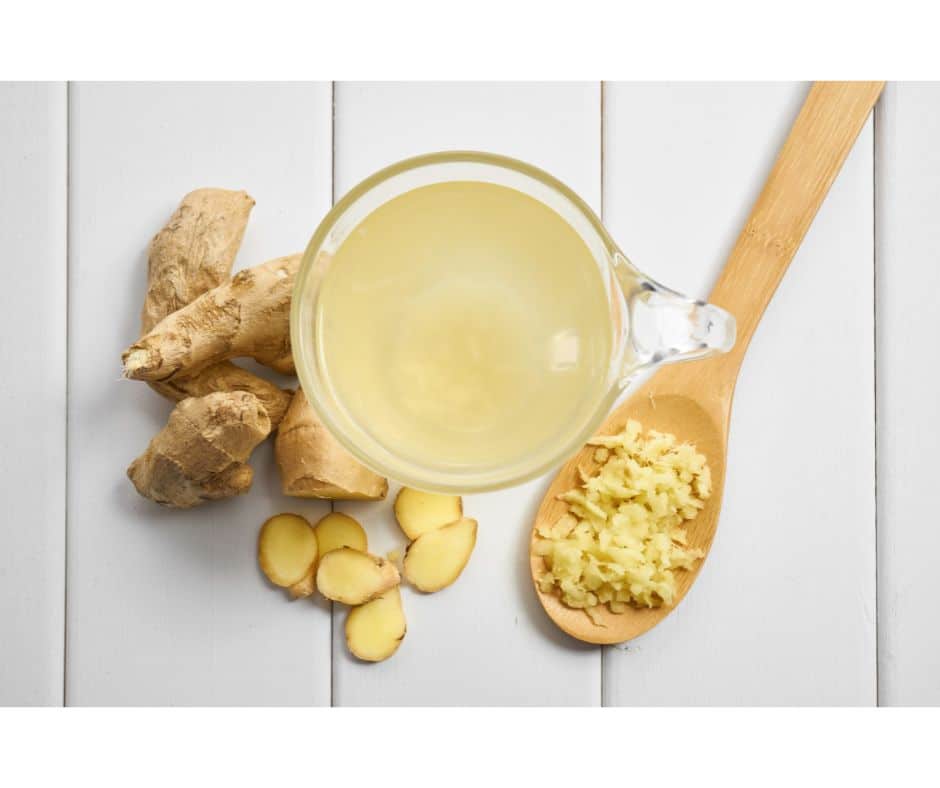
Next up, we have ginger tea. Ginger is made from the roots of the ginger plant, this warm and aromatic beverage offers a wide range of advantages for both the body and mind.
- Ginger tea is another popular tea for digestion.
- One of the most well-known benefits of ginger tea is its soothing properties. Sipping on a cup of hot ginger tea can provide comfort and relief from various ailments such as sore throat, coughs, and congestion. The natural compounds found in ginger help to reduce inflammation in the respiratory system, providing much-needed relief.
- Furthermore, ginger tea is known for its immune-boosting properties. Packed with antioxidants and antimicrobial compounds, this delightful beverage can strengthen your immune system and help fight off infections. Regular consumption of ginger tea may also contribute to improved digestion by aiding in the breakdown of food and reducing bloating or discomfort.
- Ginger tea also has anti-inflammatory properties. Ginger contains potent anti-inflammatory compounds called gingerols which can help alleviate symptoms associated with arthritis or joint pain. Gingerols have been linked to reducing inflammation throughout the body and promoting overall well-being.
Incorporating a cup of refreshing ginger tea into your daily routine can provide you with a multitude of health benefits. From its soothing qualities to immune-boosting effects and digestive aid properties – there is no doubt why you should drink this tea for better digestion.
3. Chamomile Tea
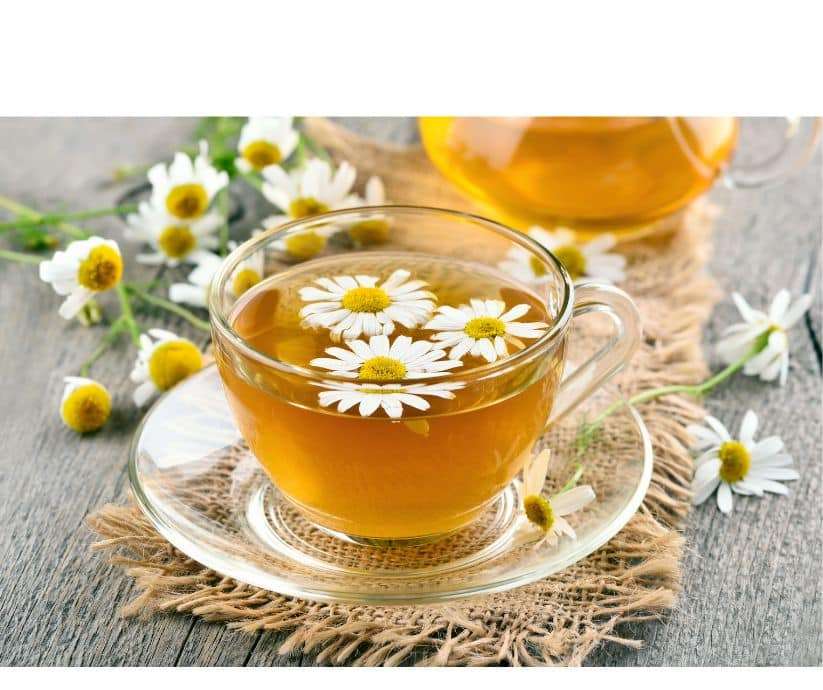
- Moving on to our third tea, chamomile tea. Chamomile tea is not only known for its calming effects but also for its ability to relax the muscles of the digestive system. This can help reduce inflammation and ease discomfort associated with bloating.
- One of the key benefits of chamomile tea is its ability to calm the mind and body. In the midst of a busy schedule, those seeking a moment of tranquility use this tea. Its gentle scent and warm infusion work to reduce stress and anxiety. Moreover, chamomile tea is renowned for its anti-inflammatory properties. It contains compounds that can help reduce inflammation in the body, providing relief from ailments such as indigestion or muscle soreness.
- Another advantage of chamomile tea is its potential as a natural sleep aid. The herbal infusion has been traditionally used to promote restful sleep by easing insomnia symptoms and improving overall sleep quality.
- Whether enjoyed hot or cold, chamomile tea offers a delightful way to unwind and reap the benefits of this remarkable herb.
So next time you are looking for a comforting beverage that brings both relaxation and health advantages together, drink a cup of soothing chamomile tea.
4. Fennel Tea
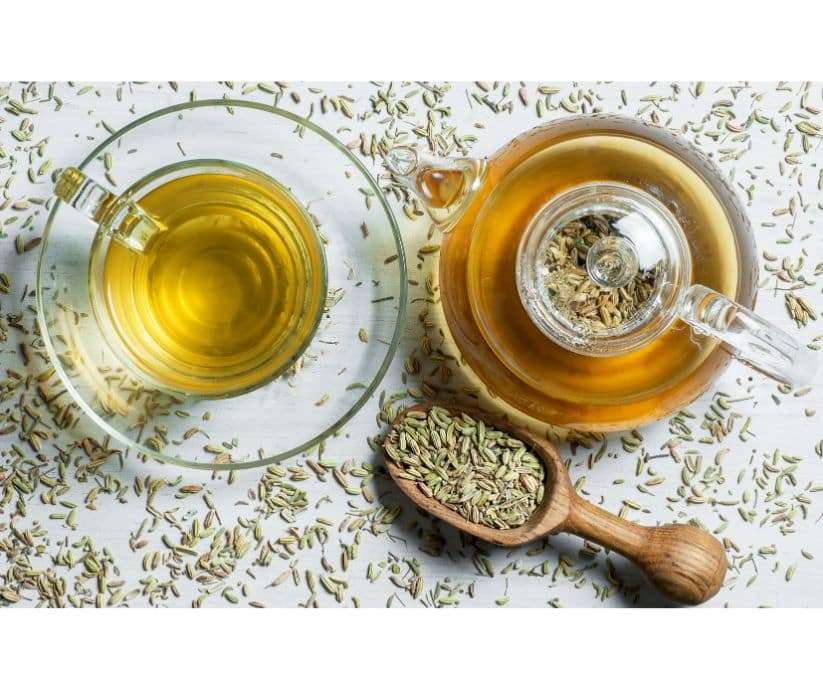
Our fourth tea is fennel tea. If you are looking for a delicious and health-boosting beverage to add to your daily routine then Look no further than fennel tea. Fennel tea can be made from crushed fennel seeds and sipped after meals.
- Fennel seeds are well-known for their ability to ease digestive discomfort, including bloating and gas.
- A distinct flavor profile, which blends licorice-like flavors with hints of sweetness, is characteristic of fennel tea. It can be enjoyed hot or cold, making it a versatile option for any time of the year. Whether you prefer sipping on a warm cup during chilly winter evenings or indulging in an iced version on hot summer days, fennel tea is sure to satisfy your taste buds.
- It also helps in weight management by boosting metabolism and reducing appetite.
- Furthermore, fennel tea has antioxidant properties that can help protect against oxidative stress and inflammation in the body. This makes it a valuable addition to any wellness routine as it supports overall health and well-being.
- Another noteworthy benefit of fennel tea is its potential to promote healthy skin. Its antioxidant content may help combat signs of aging by reducing the appearance of wrinkles and promoting a youthful complexion. Additionally, its anti-inflammatory properties may alleviate skin conditions such as acne or eczema.
Derived from the aromatic seeds of the fennel plant, this herbal infusion has been enjoyed for centuries due to its numerous benefits.
5. Dandelion Root Tea
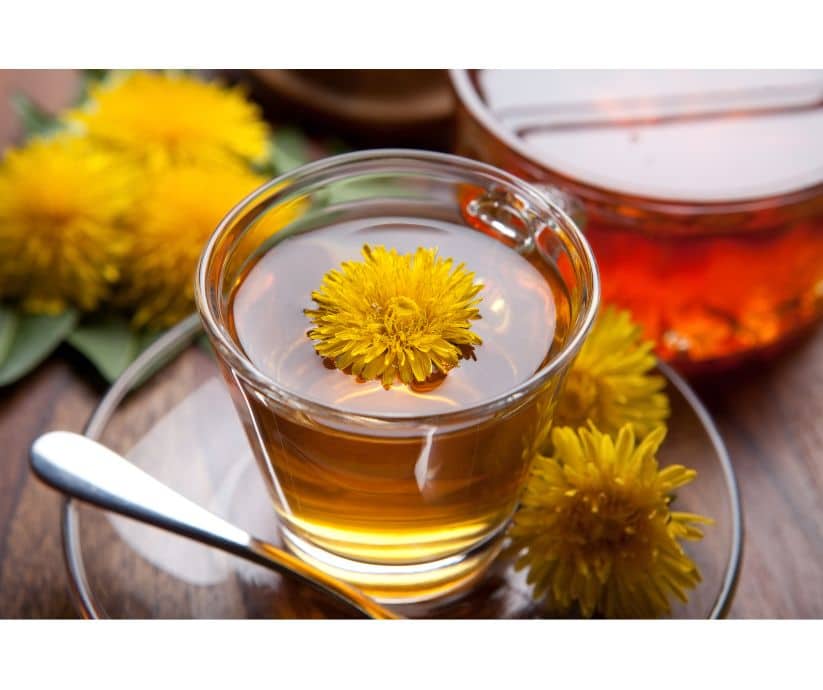
Last but not least, Dandelion Root tea.Extracted from the roots of the dandelion plant, this herbal infusion offers a range of potential therapeutic properties.
- Dandelion root tea can stimulate digestion and promote the release of bile, which aids in the digestion of fats.
- This herbal tea is also used for “detoxification.” Many people turn to this beverage as a natural way to cleanse their bodies and support liver function. Dandelion root tea is believed to stimulate bile production, aiding in digestion and promoting the elimination of toxins from the body.
- It is “anti-inflammatory.” Dandelion root tea contains compounds that possess anti-inflammatory properties, which may help reduce inflammation in the body. This makes it a popular choice for individuals looking for natural remedies for conditions such as arthritis or digestive disorders.
- It is believed that this herbal infusion can help support weight management by promoting healthy digestion and reducing water retention.
- Furthermore, dandelion root tea is rich in antioxidants, which play a crucial role in protecting our cells from damage caused by free radicals. These antioxidants may contribute to overall health and well-being by reducing oxidative stress and boosts your immune system.
In summary, dandelion root tea offers a range of potential health benefits including detoxification, anti-inflammatory properties, weight management support, and antioxidant protection. Incorporating this herbal infusion into your daily routine may be an excellent addition to your wellness regimen.
Related Article:
How to effectively use this tea for digestion?
When using these teas for digestive issues do consider these points:-
– Steep the tea for the recommended amount of time to extract the beneficial compounds.
– Drink the tea slowly and mindfully, which can aid in digestion.
– Consider drinking these teas after meals or when you’re experiencing digestive discomfort.
– Be consistent in your tea consumption, as regular use may provide better results.
CONCLUSION
In conclusion, herbal teas can be valuable allies in soothing digestive discomfort and reducing bloating. Peppermint, ginger, chamomile, fennel, and dandelion teas, offer natural remedies that have been cherished for their digestive benefits for generations. Incorporating these teas into your routine, whether after meals or during moments of digestive distress, may provide relief and promote a sense of well-being.
Additionally, individual responses to these teas may vary, so it’s crucial to pay attention to your body’s signals and adjust your tea choices accordingly. With mindful consumption and a balanced approach to digestive health, these herbal teas can be a comforting and supportive addition to your wellness journey.
Remember, individual reactions to these teas may vary, so it’s essential to monitor how your body responds to them.
Which tea do you like? I would love to hear the comments.
